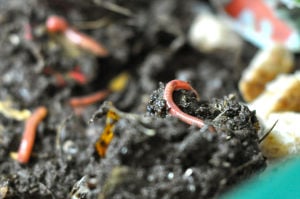 - The bio-gas digester on the roof of Hussein Farag’s apartment in one of Cairo’s poorest districts provides a daily supply of cooking gas produced from the kitchen waste his family would otherwise discard in plastic bags or empty into the clogged sewer below his building.
- The bio-gas digester on the roof of Hussein Farag’s apartment in one of Cairo’s poorest districts provides a daily supply of cooking gas produced from the kitchen waste his family would otherwise discard in plastic bags or empty into the clogged sewer below his building.
Constructed of two large plastic tubs and mostly recycled materials, the zero-emissions bio-gas unit saves his family about LE 20 (three U.S. dollars) a month in gas bills. And in the ramshackle Darb El-Ahmar district where Farag lives, that works out to nearly a day’s wage.
Farag’s bio-gas digester converts organic waste fed into its 1,000-litre plastic tank into methane gas that can be used to heat water or cook food. Ordinary kitchen waste – everything from food scraps, to stale tea and mouldy bread – is soaked overnight in water to soften, then poured into the tank’s bacteria-rich soup to decompose. A pipe carries the methane gas produced to the family’s kitchen stove.Read more : http://www.ipsnews.net/2013/06/cairos-poor-convert-kitchen-waste-into-fuel-savings/


